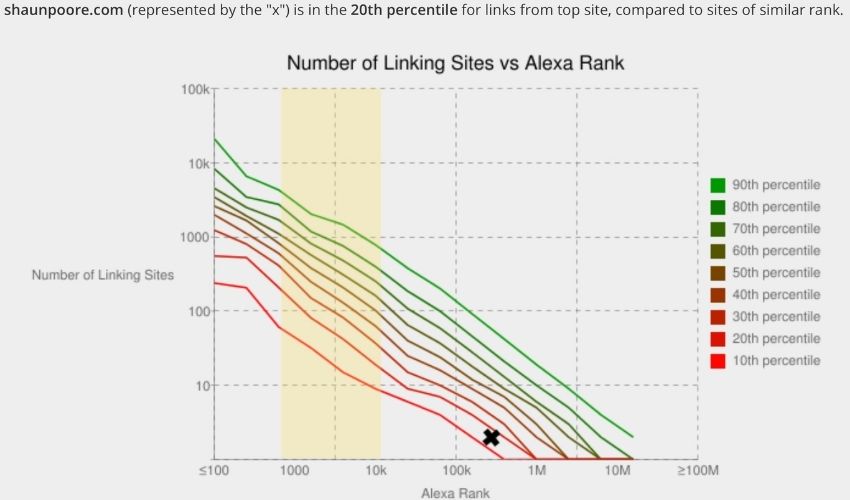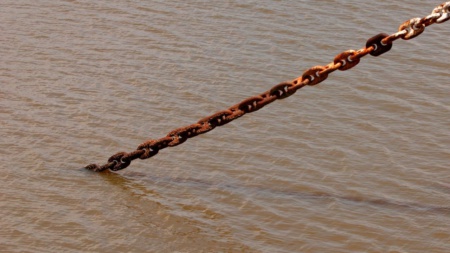In SEO, we’re told the name of the game is backlinks. Google says backlinks still impact their rankings, and the Search Engine Results Page (SERP) has sites with many backlinks on top. Ergo you can stop reading this blog post, and we should all begin link-building, right?
Maybe. But, perhaps not.
The problem is that it can take several hours to manually build a single backlink. In that same amount of time, I could write a brand new blog post for a low competition keyword. And now the question isn’t so much is a backlink valuable, but is it more valuable than a great new post I could put on my website instead?

To figure this out, we need to cover 3 things in this article.
- How far will an individual backlink move you up the SERP?
- Exactly how much traffic will you gain by moving up the SERP?
- If a backlink will move you up the SERP, will the traffic gain be worth the opportunity cost?
Part 1) Case Study: How Far Will Backlinks Move You Up The SERP?
Proving definitively whether backlinks work or don’t work is next to impossible because Google’s a black box. The only tools we have at our disposal are what Google tells us and analyzing the search engine results page.
That said, I did come across this amazing little graphic from Alexa Rank (before it was discontinued) that shows the average number of backlinks that a site has by its Alexa rank.

In the graph you can clearly see backlinks tend to matter. That said, I’m very encouraged that most of the top sites on the Internet have less than 1,000 legit domains linking into them. It means maybe we don’t need to build as many links as we’re often told to be successful.
Anyway let’s analyze the SERP to see how much backlinks help! But, before we get to that, we have to mention an obvious flaw in all backlink studies.
Which Came First, The Backlink or The Ranking?
The #1 way that backlinks are earned is by a blogger Googling something and then haphazardly linking to it. Don’t deny it, that’s how you give out 99% of your links (and how I attribute most links as well).
This presents us with a bit of a conundrum. The top 10 results should always have the most backlinks because people give out backlinks to the top 10 results in Google. This is why backlink “correlation studies” are stupid. Which came first, the ranking, or the backlink?

My Methodology For This Backlink Case Study
Ignore low competition queries. If the phrase you’re targeting has Quora ranked #1, you can easily outrank that page without any backlinks. It’d be a waste of time to build a backlink to a query like this. You’ll win it either way.

Analyze a high competition query. What we primarily care about is how backlinks affect mid to high competition queries. If the prevailing wisdom about backlinks is correct, I’d expect a clear correlation between backlinks and your Google ranking. This is for two reasons.
- Backlinks should cause your ranking to improve.
- You acquire backlinks by ranking high.
So let’s analyze a query! “How to start a blog.” is a high-traffic query that’s easy to monetize with affiliate links in a high competition niche. This makes it one of the most competitive queries on earth.
I had to purchase ahrefs to run this experiment as Google killed off the Link: command in 2017. I listed the top 50 results. Each result lists the number of referring domains to both the page and the site as a whole.
These results don’t match our hypothesis in that they’re not ordered by the number of backlinks. Click-through-rate, relevance, and article quality all appear to play a more prominent role than we anticipated.
This tiny example isn’t enough evidence to say backlinks don’t matter. But, I want to point out some significant outliers to drive home the priority given to other ranking factors.
Outlier 1) Why Doesn’t the #1 Result Have By-Far the Most Backlinks?
I’d expect the #1 result to have the most backlinks because it is the #1 result. I’d also expect the #1 result to have the most backlinks because being #1 is how you acquire backlinks.

Except, it doesn’t have the most backlinks. 7 of the top 50 results have more page backlinks, and 14 of the top 50 have more domain backlinks. What is going on here?
This isn’t a particularly fast website. It’s tough to say what it is about this website that’s causing it to rank #1 beyond “Good user experience.”
Outlier 2) Why Is Hubspot on Page 3?
Hubspot is one of the biggest blogs about blogs in existence. Their sitemap.xml says they have over 16,000 blog posts. The page they wrote has 1,461 backlinks, the domain 89,000 backlinks. And yet Hubspot ranks 22nd, what gives?

Hubspot’s article is more about how to write various types of blog posts than starting a blog from scratch. Other sites appear to be winning because they’re more relevant to the query.
Outlier 3) Why is Elite Blog Academy Ranked so high?
Elite Blog Academy has 1 measly backlink to their page. ONE! Their entire website only has 617 backlinks, and yet they rank 16th! How on earth is this site outranking Hubspot (or any site for that matter) if backlinks are the primary ranking factor?

It’s not a bad article, but there are many behind it in the SERP I think are just as good or better. So what’s going on here? My best guess is that How to Start a Blog in 5 Easy Steps | How to Start a Blog in 2020 is a significantly better title than the results behind it. Click-through-rate may matter more than backlinks do.
Part 2) How Valuable is Moving Up The SERP?
It’s not clear that backlinks will cause you to rank #1 for high competition queries. I’ll buy that backlinks help. But, you’re looking at a small rankings boost as opposed to a massive shift.
The question becomes, how much extra traffic will you get from a minor rankings boost? Let’s cover the click-through-rate for various positions in the SERP, and you can debate whether this is worth it.
According to Moz, the click-through-rate of Google desktop traffic is as follows. I highly suggest reading their article if you’re curious about their methodology. I’m simplifying it, mobile traffic is different, and the SERP has changed a lot since 2014.
| Rank | Click-Through-Rate | Extra Traffic vs. Previous Rank | Clicks From 10k Keyword Searches |
|---|---|---|---|
| #1 | 31.24% | 123% | 3,124 clicks |
| #2 | 14.04% | 43% | 1,404 clicks |
| #3 | 9.85% | 41% | 985 clicks |
| #4 | 6.97% | 27% | 697 clicks |
| #5 | 5.50% | 47% | 550 clicks |
| #6-#10 | 3.73% | 1,765% | 373 clicks |
| Page 2 (combined) | 3.99% | 149% | 399 clicks |
| Page 3+ (combined) | 1.60% | NA | 160 clicks |
But, for the sake of argument, let’s say Moz’s click-through-rates are accurate. You can see there’s an enormous advantage to moving to page 1. And then there’s also an enormous advantage for each spot you move up the top 5.
Even better news, this effect is only for one keyword. The way Google works is that the more popular your post is, the more LSI keywords you rank for.
For example, I wrote a post about how to embed a private YouTube video on your website. The graphic below represents the number of keywords that got clicks each of the 4 months that followed the post (I did zero link-building).

As you can see, it’s not just that you get more clicks as you move up the SERP. You also start getting ranked for more and more keywords that you’ve never even thought of before.
So there is a pretty clear advantage to moving up the SERP. It’s a little bit unclear how far up the SERP a ton of backlinks actually move you. Let’s get into part 3, is building links worth the time it takes to build them?
Part 3) Is The Link-Juice Worth the Squeeze?

Pretend that you believed to rank top 10 for “How to start a blog” you needed to have the 10th most backlinks to your article. This would mean you’d have to build roughly 600 backlinks to your page (not your site, your page).
How long do you think that would take you? To do outreach until 600+ webmasters decided to link to your page?
If I was generous and assumed it took you 4 hours to manually build a link to your page. We’re talking about 2400 hours or 60 full-time work-weeks until you’ve accomplished this feat. And that’s not to rank #1, that’s to rank top 10.
Opportunity Cost
To run a successful business, one must understand opportunity cost. The simple way to describe this is if you spend 2,400 hours link-building or 2,400 hours creating content, which would provide more value to your business?

I’m not saying links have 0 value. What I’m saying is I’d rather have 300 posts than 600 backlinks. And it’s not close.
Google is an ocean. Over 3 trillion searches are made every year on the platform. Don’t get obsessed with ranking for a single keyword. Instead of obsessing over the biggest fish, catch tons of small ones. After you do that, the big fish will start jumping in your boat.

Do Backlinks Depreciate with Time?
Another concern I had with backlinks was do they lose value with time?
According to John Mueller (see video below), links stay static as long as the relevance of the linking website doesn’t change. John mentions that if a news site links to you from its home page, it’ll lose link juice when that link moves to the archive.
Conclusion
Google has told us that links are still a part of their algorithm and will likely continue to be for some time.
But, I believe that links aren’t as valuable as they’re made out to be. I think that’s obvious when you objectively analyze the SERP as we did here today.
Why have we told ourselves links are more valuable than good content, great headlines, and user experience? Because people will pay a premium for links or link-building tools. Yet, they pay garbage for writers or copy editors. Good marketers have used this flaw in human cognition to sell you a bill of goods.
Please consider the opportunity cost before spending inordinate amounts of time link-building.


